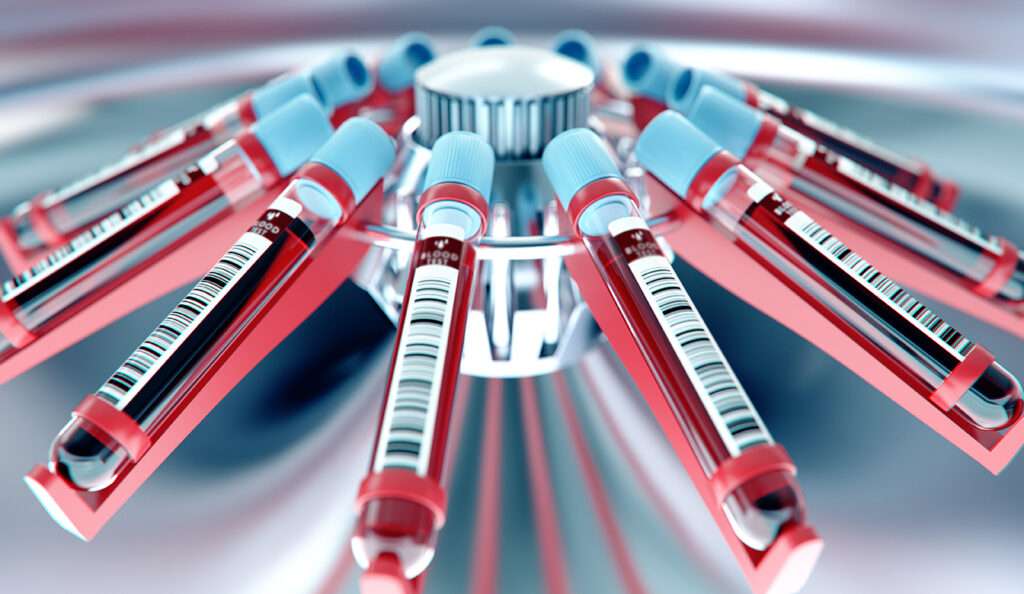
As a preventative cardiology practice, our team at Holistic Healing Heart Center works with patients to identify early risk factors for heart disease. Atherosclerosis occurs when the blood vessels that carry oxygen and nutrients from the heart to the rest of the body (arteries) become thick and stiff — sometimes restricting blood flow to the organs and tissues. Atherosclerosis can cause a heart attack, stroke, aneurysm, or blood clot. One of the top risk factors for atherosclerosis is high cholesterol. Therefore, traditionally, cholesterol screening was the #1 tool for assessing the risk of atherosclerosis. Today, there is new evidence that inflammation is a contributing factor to atherosclerosis. At Holistic Healing Heart Center, we offer inflammatory marker testing, which can make atherosclerosis risk assessment even more effective than cholesterol screening alone.
What Are Inflammatory Markers?
A biomarker, also called a biological marker, refers to an objective measurement of something happening inside a person’s body. A biomarker that gives information about inflammation might be called an “inflammatory biomarker.” Inflammatory markers are blood tests doctors use to detect inflammation in the body, caused by many diseases. This can include infections, auto-immune conditions and cancers. Sometimes this term is used to describe markers that give additional information about a person’s immune system, even if they aren’t directly involved in inflammation. Some of the inflammatory markers for heart health are:
MPO, or myeloperoxidase, is an inflammatory enzyme released within the vascular lumen during white blood cell activation. Elevated levels of MPO independently predict 2.0–2.4x increased risk of future cardiovascular events.
Lp-PLA2 measures the disease within the arterial wall under the calcified cap of the plaque. Elevated Lp-PLA2 has been associated with a 2.0x increased risk for developing CHD independent of non-HDL cholesterol levels.
hs-CRP is a highly sensitive measurement of C-reactive protein. Patients with high CRP have a 1.5-2.0x increased risk of developing subsequent atherosclerotic disease compared with patients with low CRP levels.
ADMA/SDMA are derivatives of the amino acid L-arginine and are produced via protein degradation. Elevated ADMA indicates a 1.4x increased risk of CVD and coronary heart disease (CHD) and a 1.6x increased risk of stroke.
Cardio IQ® Oxidized LDL measures damage of the ApoB protein subunit on the surface of LDL due to oxidative modification.
Cardio IQ® F2-IsoPs measure oxidative stress induced by lifestyle risk factors for CVD including smoking, poor diet, high red meat intake, and a sedentary lifestyle. Elevated levels of F2-IsoPs indicate a 2.6x increased risk for CAD and a 1.8x increased risk of CVD mortality.16
Why Are Cardiovascular Inflammatory Markers Important?

Inflammatory processes are now recognized to play a central role in the pathogenesis of atherosclerosis and its complications. Plasma levels of several markers of inflammation have been found to be associated with future cardiovascular risk in a variety of clinical settings. These markers include cell adhesion molecules, cytokines, pro-atherogenic enzymes and C-reactive protein (CRP).
While routine lipid screening has an important role in cardiovascular risk assessment, cholesterol screening alone may not adequately identify the risk of adverse events. In fact, nearly 50% of all heart attacks and strokes occur in patients who had “normal” cholesterol levels. Evidence suggests that inflammation within the artery wall is a key contributor to residual risk for heart attack and stroke, contributing to vulnerable plaque formation as well as plaque rupture.
But how do you measure inflammation? In fact, inflammation can be measured with advanced testing. Monitoring a patient’s inflammatory status may help your holistic cardiologist to uncover hidden risk from early to advanced stages of cardiovascular disease. With deeper insights, you can take further action to help reduce your cardiovascular risk.
Measuring an inflammatory marker, combined with lipid testing may improve the detection of cardiovascular diseases such as atherosclerosis. Then, if you are at risk, your healthcare provider can recommend diet and lifestyle changes to help you prevent or mitigate heart disease. As such, cardiovascular inflammatory markers can serve as an important tool to early prevention and ultimately a healthier heart.
Expanded Cardio IQ® Advanced Inflammatory Testing At Holistic Healing Heart Center in Burbank, CA
Holistic Healing Heart Center in Burbank offers unique cardiovascular inflammation testing. Cardio IQ inflammation testing includes blood and urine biomarkers that identify inflammatory risk across the disease spectrum. This additional information allows for targeted treatment to reduce risk over one’s lifetime.
Cardio IQ® inflammatory marker testing covers your biomarker profile, ranging from markers resulting from lifestyle concerns (f2-IsoPs, OxLDL) to the development of metabolic or cardiovascular disease (ADMA/SDMA, microalbumin, hsCRP), and formation of vulnerable plaque and increased risk for an adverse event (Lp-PLA2, MPO).
Schedule a consultation with our holistic cardiology team to get started: call us at (818) 842 1410 or schedule on our website:





